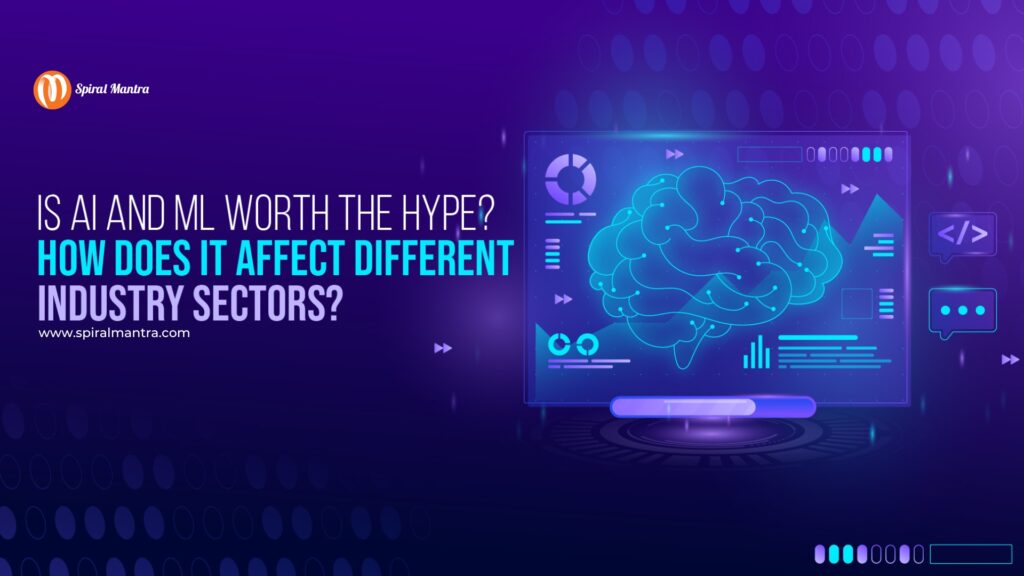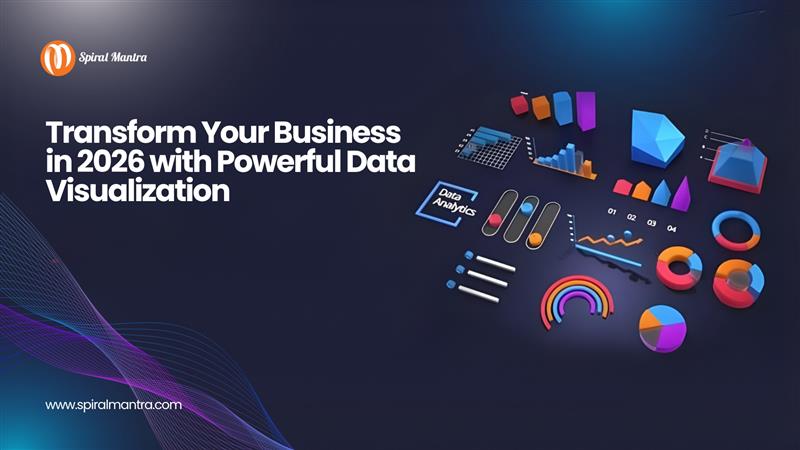
AI’s Hype Cycle: Separating Innovation from Illusion
Artificial intelligence has come a long way in the last year, going from being a mere curiosity to one of the most hotly debated subjects in the world. AI and ML are at the peak of its hype cycle, fueled by both grand expectations and fear-inducing myths. However, AI has been constantly giving justified outcomes to eradicate these misperceptions. Picture this: The year is 2002. You're fortunate enough to obtain a cutting-edge smartphone that enables you to communicate with anyone on the planet. Changing one's life, huh? During the early 2000s, firms such as Ericsson, Nokia, and BlackBerry dominated the mobile phone industry. When the iPhone first came out in 2007, everything changed and the former market leaders were wiped out. The iPhone revolution shows us that long-term winners aren't necessarily the ones that innovated first during a tech boom cycle. As a matter of fact, they rarely do. This is an important thing for all entrepreneurs and VCs to think about, especially because the AI hype cycle is still fluctuating, and early-stage generative AI businesses are being valued at exorbitant sums.What is the role of AI in businesses?
Artificial intelligence (AI) is a key instrument in business that is revolutionizing consumer interaction and marketing strategies. It is not simply a fad. Our study indicates that over 90% of corporate executives are preparing to increase their spending on artificial intelligence (AI) and machine learning (ML), particularly in the field of marketing.Why is there a surge?
The capacity to precisely target certain client groups and segment behaviors is at the core of this AI revolution. It's about developing more individualized strategies, making more informed decisions, and getting a deeper grasp of consumer needs—all of which are critical across several business divisions. Today, artificial intelligence (AI) is a catch-all term for a number of related disciplines, including machine learning, deep learning, and natural language processing. Numerous applications, including chatbots, virtual personal assistants (like Siri and Alexa), recommendation engines, driverless cars, and medical diagnostic systems, have been made possible by the advancement of AI. These applications show how AI may be used in real-world settings to carry out particular activities with a high degree of efficiency and precision. More and more companies are using AI to streamline and enhance their operations. Businesses are embracing AI in a variety of ways, according to the Forbes Advisor study. The most widely used uses of AI are in customer service, where 56% of respondents said they use it, and in cybersecurity and fraud management, where 51% of organizations use it. Customer relationship management (46%), digital personal assistants (47%) inventory management (40%) and content creation (35%) are some noteworthy applications of AI. Additionally, companies use AI for audience segmentation (24%), supply chain operations (30%), accounting (30%), recruiting and talent sourcing (26%), and product suggestions (33%).Impact of AI and ML on the retail industry
In today's global economy, retail enterprises must put profit and productivity first in order to be competitive. To secure success and maintain an advantage over rivals, swift and decisive action is required. Artificial intelligence (AI) may boost retail operations by boosting revenue and streamlining administrative procedures. By 2028, it's expected that the retail industry's use of AI services would rise from $5 billion to over $31 billion.The following are the major benefits that the retail industry leverages by AI:
Automation of processes
Employees in the retail sector are spending less time on time-consuming and repetitive jobs thanks to artificial intelligence, which is helping to automate many of the operations that professionals used to complete manually. They are therefore able to devote more of their time to tasks that center on the needs of the client. AI-assisted labor also reduces the possibility of human mistakes in routine jobs like processing invoices, making it more dependable.Preventing theft and loss
For some goods, automatic charging will lower the possibility of loss. Artificial Intelligence may be used to identify theft and suspicious activity in physical retail establishments that offer traditional services.Analysis of consumer behavior
In order to create higher standards for future client experiences, AI may also assist in the analysis of trends in previous consumer behavior.Interactive chat
AI is used to integrate a chatbot that lets users receive real-time assistance in the manner that works best for them.Impact of AI on the Logistics Industry
There has been a noticeable buzz in recent years about AI's potential across several sectors. However, AI hasn't only created a stir in the transportation logistics industry—rather, it's revolutionized the field. Let's examine in detail how AI melds into this expansive field, imbuing every operational node with a hint of intelligence.AI-Powered Route Optimization Algorithms
The precision of route optimization has increased to previously unheard-of levels thanks to AI-driven algorithms. With the provision of dynamic updates, drivers may now guarantee on-time deliveries while reducing operating expenses.Predictive Analytics for Vehicle Health and Repair
AI-powered predictive analytics can anticipate when a car will probably need repair, enabling preventative measures. This ensures smoother operations by extending the lifespan of the vehicle and lowering unplanned downtime.AI algorithms, automated warehousing solutions, and smart inventory management
Robots can now pick, sort, and pack goods with efficiency. Furthermore, AI-powered intelligent inventory management solutions guarantee ideal stock levels, minimizing overstock and stockouts while offering real-time visibility into inventory status.AI for Shipment Tracking and Demand Forecasting
Businesses may now provide more accurate demand projections by using AI to examine past data, industry patterns, and other contributing factors. Better resource allocation and more seamless logistical operations are ensured by doing this.Impact of AI on Healthcare Industry
The application of AI in healthcare has expanded significantly over the past ten years or so. It now powers patient sensors and wearable technology in addition to software used by healthcare organizations. Particularly in the area of patient-centric healthcare, we have witnessed an unprecedented surge in technological advancements in the previous few years.- Better Care Access: AI makes it possible for individuals, particularly those living in underserved or rural regions, to have greater access to healthcare services. The field of telemedicine has expanded, and chatbots—which use artificial intelligence—help with appointment scheduling and provide basic medical information.
- Assistive and Autonomous AI: Autonomous AI is capable of diagnosing diseases like diabetic retinopathy, while assistive AI which is helpful helps assess huge databases and analyze medical pictures.
- Advantages for Clinical Teams and Patients: AI enhances population health, reduces expenses, and produces better results. It is applied throughout the whole spectrum of care, including diagnosis, treatment, and preventative screenings.
- Future Innovations: Artificial intelligence (AI) has the potential to completely transform healthcare by improving diagnosis, treatment strategies, and overall patient outcomes. It could also aid in the search for novel medicinal treatments.
- Impact of AI on the Banking Industry: For the banking sector, artificial intelligence's unique capacity to evaluate massive information and provide material in digestible formats will be revolutionary. For many years, banks all around the world have assessed customers.
- Underwriting: By evaluating alternative data sources, such as consistent utility payments and consumption trends, underwriting AI algorithms are utilized to evaluate creditworthiness. Underwriters may now evaluate unstructured datasets with the help of generative AI, which helps them make precise and well-informed credit choices.
- Money handling: Banks will be able to use AI to build portfolios for individual retail investors seeking more secure options. AI has made it feasible to hyper-personalize on an individual basis, at scale, and with a high degree of consistency.

